Kyiv is readying to host on August 23 the inaugural Summit of the Crimea Platform, the initiative launched by Ukraine to demonstrate international unity around the position affirming that "Crimea is Ukraine," to condemn Russia's crimes in and around Crimea, and to outline the parameters of international policy toward putting an end to the occupation.
The Crimea Platform coordination and consultation format will operate at several levels, including that of the heads of state and government, top diplomats, parliament chairs, and international experts.
On August 6, the inaugural forum of the Crimea Platform’s International Expert Network was held, attracting many experts from Ukraine and beyond seeking to contribute to research and develop the ways to achieve the main goal of the initiative – ensure that Ukraine regains its legitimate control of the temporarily occupied peninsula. Dr Jade McGlynn, a British Russianist and expert on memory politics, researcher with the Henry Jackson Society, has joined the efforts.
The expert sat down with Ukrinform to share her insights about the Crimea Platform initiative as such, the role of Ukrainian partners, including the UK, in practically supporting Ukraine on the path of ending Russian occupation of Crimea, as well as speak of a hybrid toolkit Russia is applying to hinder and compromise the Platform’s work at various levels.
WE CANNOT TREAT THE ILLEGAL ANNEXATION OF CRIMEA AS A FAIT ACCOMPLI
As we’re aware, Dr. McGlynn, you have devoted much time and effort to researching the issue of Russian aggression against Ukraine, including the Crimea annexation attempt, and you are now involved in the Crimea Platform’s international expert network. How do you see the practical implementation of this Platform’s goals?
The Platform’s four key aims are: non-recognition of Russia’s occupation; sanctions against those who facilitate Russian aggression; enhancing regional security, including freedom of navigation; and promoting human rights and international law obligations.
Achieving these objectives will require an international approach. As such, the first task of the Platform is to reinvigorate public foreign interest in what is happening in Crimea and the consequences of Russia’s illegal annexation of the peninsula. There are roles to play in this for both experts and politicians, which is why both networks are important.
It is important for Ukraine’s allies in both political and expert networks to create a different story around Crimea. We cannot treat it as a fait accompli, where we simply mark the anniversary of the illegal annexation every March. Instead we – through research, media and parliaments - need to raise awareness of the Russian state’s ongoing depredations, new human rights abuses on the peninsula, and security issues that concern the entire Black Sea region and even, via food security, the world. If more politicians were aware of the maelstrom of security and human rights issues coalescing in the illegally-annexed peninsula, then the arguments, policies and objectives of the Crimea Platform would be more likely to be implemented and to have tangible impacts on the Russian government’s deleterious actions there.
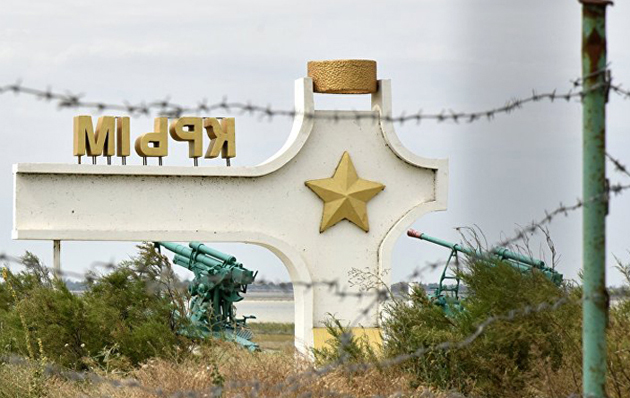
Moreover, by shoring up Crimea’s position within foreign policy agendas, we also shore up European security. As we saw in March and April 2021, when Russia built up troops in the peninsula and on the borders with Ukraine and in the peninsula, the unpredictability of the Russian government could severely risk European security. The centrality of Crimea to the spring escalation shows the importance of continued international monitoring of the Russian government’s actions there, amid increased militarisation and a deteriorating human rights and socio-political situation on the peninsula.
Given this prominence, Crimea must be at the heart of discussions over how to counter ongoing Russian aggression – not just part of the backstory.
IT IS REALLY IMPORTANT THAT THE CRIMEA PLATFORM HAS A STRONG COMMUNICATIONS PLAN TO EXPLAIN WHY COUNTERING RUSSIA’S OCCUPATION OF CRIMEA MATTERS TO ALL OF US
As Deputy Foreign Minister Emine Dzheppar recently reported, Russia is trying to put pressure on the governments that have agreed to participate in the Crimea Platform initiative. In your opinion, what other obstacles could the Kremlin put forward in order to interfere with the platform’s normal operation and to discredit it?
The Kremlin is already using its traditional blend of derision, disinformation, and disincentivization to undermine the Crimea Platform and it will continue to do so. As well as pressuring those governments over which it has some leverage, the Russian government will also seek to play on apathy abroad towards the question of Crimea, just as it plays on political apathy at home to cement its rule. So, the Kremlin will continue to use its ‘news’ agencies and outlets (RT, Sputnik) to propagate narratives, such as Crimea was a legitimate referendum, Crimea is ancestral Russian land, Ukraine isn’t a real country anyway, Crimea was given to Ukraine by accident, Russia had to intervene to save Crimeans from a Banderite genocide. Ukrainians are unbearably familiar with these propaganda points but they can contribute to reinforcing apathy in countries whose populations do not know much about Ukraine. So it is really important that the Crimean Platform has a strong strategic communications plan - developed with experts in each country and adapted to local contexts - to counter these narratives and to explain why countering Russia’s occupation of Crimea matters to all of us.
To achieve this, I think any such campaign needs to draw more attention to the fact that, post-annexation, the Crimean peninsula is not in stasis – the situation for human rights and security is worsening. For example, my own work examines deleterious effects of the militarization of children’s education and the types of ‘military patriotic’ clubs and camps established in Crimea. The continued and worsening targeting of Crimean Tatars should also be afforded much greater prominence internationally.
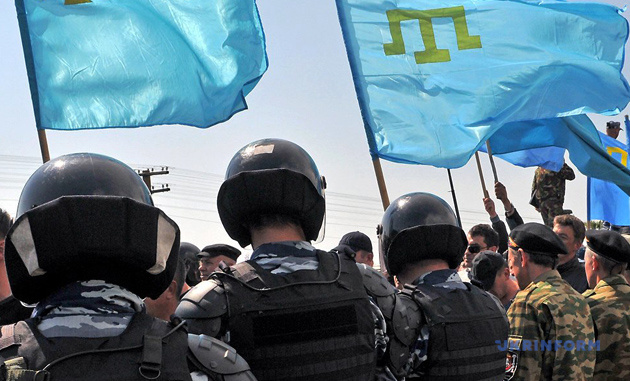
Second, allied politicians and experts should take the time to explain to domestic audiences why Crimea matters to their own respective country. Even in the UK, where there is a lot of support for Ukraine, some MPs have suggested there is no point discussing Crimea as it is a ‘done deal’. We (friends of Ukraine) need to battle against this attitude and explain that even if we can’t reverse the occupation immediately, we still need to play close attention to what happens on the peninsula because of the consequences for international security and for those living under Russian occupation. Moreover, we should be sensitive to the message we would convey to the Russian government if we tacitly accepted the occupation; namely, that changing borders by force is acceptable, violating norms is fine. The original EU and US sanctions enforced in March 2014 in response to Russia’s annexation of Crimea were underwhelming. Perhaps if they had been tougher, the Kremlin would not have been left with the impression that the international community did not care about Crimea.
THE UK SHOU&LD CONSIDER INCREASING ITS MILITARY PRESENCE IN THE BLACK SEA AND ON THE TERRITORY OF UKRAINE
At which tracks do you think the UK, a consistent and reliable partner of Ukraine, should support the effective operation of the platform at all levels?
On January 1 this year, the UK and Ukraine’s Strategic Partnership Agreement came into force. It was originally intended to maintain continuity with Ukraine’s EU association agreement after Brexit, but the Strategic Partnership Agreement eventually extended beyond this by focussing on tackling Russia’s invasion of, and interference in, Ukraine. The Agreement is intended as a springboard for a future relationship, and not as a cap and I would like the UK to take a prominent role in the Crimea Platform as a means of extending this partnership.
In particular, I welcome the cooperation between the UK and Ukraine in the defense sphere. Realistically, a MAP for NATO is unlikely to be offered any time soon. In its absence, it is important for Ukraine to develop strong bilateral defense and strategic defense partnerships. There's lots to celebrate here but I think future defense cooperation between the two nations should also include UK investments in Ukraine’s own capacity to build the weapons and vessels it needs; for example, investment in rebuilding Ukraine’s ship-building industry in Mikolayiv.
There are also several other concrete steps available to the UK government that would confirm their intention to be the proactive partner described in the Strategic Partnership Agreement and to help Ukraine – through the Crimea Platform - in its efforts to refocus the international community on Crimea. These include
1. To promote Ukrainian sovereignty and the international salience of Crimea’s annexation, the UK should work actively with its allies and partners around the world, especially in the Commonwealth, to encourage them to support Ukraine in international organizations, including the UN General Assembly, when the issue of Crimea is raised.
2. Within the auspices of the Crimea Platform, the UK should support and work towards the establishment of an annual Security Forum for the Sea of Azov, Black Sea, and Eastern Mediterranean as well as actively participate in its activities.
3. The UK should consider increasing its military presence in the Black Sea and on the territory of Ukraine; for example, by deploying the UK’s rapid response force 16th Air Assault Brigade for joint training, as happened last year, or by sending naval assets to the basin of Black Sea.
4. The UK government should contribute to regular joint expert events aimed at increasing monitoring and analytical capacity of the human rights situation in Crimea. This should include facilitating UK civil society experts to also attend and contribute to any such events and/or fora.
5. The UK should extend its existing Magnitsky-style human rights regime sanctions to target those officials involved in human rights abuses in Crimea. Ukrainian civil society activists have produced a list of those involved in the persecution of Crimean human rights defenders that the UK should consider.
6. Given the role of the Russian state-imposed judiciary in facilitating political persecution, the UK should reconsider its blanket position on refusing to sanction judges. The judiciary in Russia and in occupied Crimea is not independent and actively facilitates human rights abuses, as has been documented in frequent reports.
7. The UK should sanction all Russian entities that function as intermediaries for Crimean organizations with the aim of avoiding international sanctions.
Finally, I also think that UK Prime Minister should visit Ukraine as soon as possible, since the last official state visit took place in 2005.
FOR THE UK, THERE IS SOME SCOPE TO MAKE PROGRESS, ESPECIALLY AROUND SANCTIONS
What are the main practical ways for the UK, as the world’s key financial center, to counter Russian aggression on a global scale, given the impossibility of the very existence of the Russian banking, insurance and certification systems without a powerful platform in London?
Unfortunately, the question of the UK’s role in facilitating corruption is a topic where my optimism really runs out. There are obvious ways the UK can and should be countering Russian illicit finance. This topic is well-discussed in London and well-known by the government officials. Unfortunately, although there are many officials in Her Majesty’s Government trying to fight against the inflows of dirty money from Russian elites, they are hamstrung by the government’s obvious and noted lack of interest in doing something – anything - about Russian dirty money. This is desperately short-sighted because future generations of young Russians, more democratically-minded than older generations, will be justifiably angry at the UK for facilitating autocracy and kleptocracy. They will remember that it was too expensive for ordinary Russians to study in the UK or even afford a tourist visa but that we welcomed the gilded offspring of Kremlin politicians and officials.
The people of Ukraine also have a right to be angry with the UK in this area. It is hypocritical of British representatives to lecture Ukraine on its – real and multifaceted – issues with corruption when they know very well that much of that stolen money is nestled in UK bank accounts, shell companies, or offshore accounts under UK jurisdiction. However, there is no government appetite to do anything about this so, sadly, the UK will continue to facilitate Russian aggression at home and abroad.
That said, there is some scope in more limited areas to make progress, especially around sanctions. The UK – and other Crimea Platform participants – should act to punish the illegal expropriation of Ukraine’s state and private enterprises, which Russia has seized since occupying the peninsula; for example, Masandra Winery, which was forcibly nationalized in 2014 before being sold off in 2020. As well, the UK should focus its energies on closing sanctions loopholes. Financial sanctions are easily bypassed by Crimean banks, which use so-called ‘correspondent accounts’ in Russian banks that, in turn, have their own such accounts overseas. Similar schemes exist in the military industry, allowing Crimea-based Russian enterprises to participate in export-import operations despite clear restrictions and prohibitions in place. The UK should identify and sanction these ‘intermediaries.’
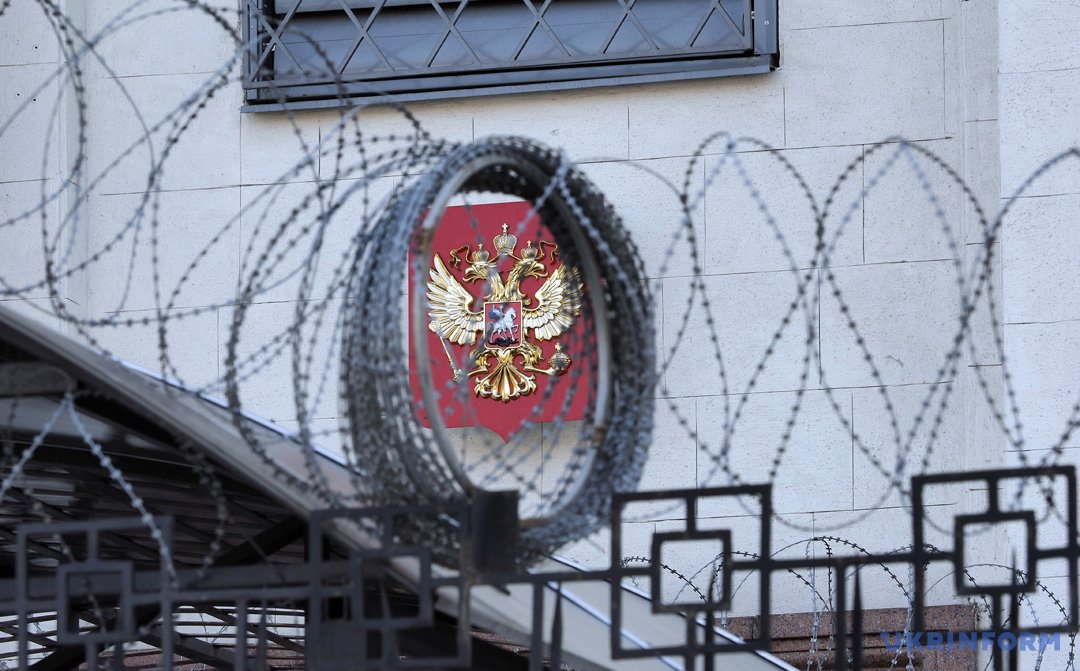
THE UK HAS A CHANCE TO DEMONSTRATE THE POLITICAL AND DIPLOMATIC RESOLVE TO COMMIT TO A LONG-TERM STRATEGY OF RESISTING RUSSIAN AGGRESSION
Ukraine appreciates Britain's continued support for our country. But what is the practical significance of supporting Ukraine for Great Britain? Does your country receive economic and political bonuses from cooperation with Ukraine?
The significance of supporting Ukraine for Great Britain crosses several spheres; indeed, most of the issues discussed so far have direct, indirect, or potential implications for the UK. First and foremost is the issue of security. Russia’s heightened activities in the Sea of Azov and in the Black Sea pose a significant challenge to the UK’s allies in NATO in the region. The modernization of the Russian Black Sea Fleet has recently placed emphasis on new sea-based missile capabilities, increasing the risks to NATO infrastructure, equipment, and populations in the Black Sea region. On 25 November 2018, Russian forces blocked the passage, fired at and seized two Ukrainian navy ships and a tugboat, wounding six and detaining 23 Ukrainian service personnel. Four days later, Ukraine called on NATO to send ships to the area. Avoiding similar flare ups, which could even lead to conflagration, requires the UK on its own and through NATO to take a firm line against Russia, maintaining a presence in the region to ensure freedom of navigation but also to act as a visual cue to remind Russia of Ukraine’s allies. Consistency is key if NATO is to avoid giving the impression of being unduly provocative.
Likewise, the possibility of nuclear proliferation on the Crimean Peninsula is also worthy of the UK’s – and international – attention and requires careful monitoring. The Crimea Platform can provide useful space for dialogue and the scope for enhanced monitoring and analysis of what is happening on the occupied territory. Used in this way, the Crimea Platform can provide a mechanism for ensuring firmer, more informed action. By assuming a firm and consistent stance against the Russian government’s malign activity – wherever it may be – the UK has a chance to demonstrate the political and diplomatic resolve to commit to a long-term strategy of resisting Russian aggression.
While far from the first evidence of the post-Soviet Russian state’s willingness to use military force abroad, the annexation did represent a turning point – in terms of sheer audacity alone. As noted, the relatively weak immediate international response did nothing to deter the Kremlin from further acts of aggression against Ukraine. This had a direct, and somewhat forgotten, impact on the UK when ten British citizens – passengers on Malaysia Airlines Flight MH17, were shot out of the air in eastern Ukraine with a Russian-origin BUK missile.
Less explicitly, it is in the UK’s interest to take serious measures to work towards a de-occupation strategy in Crimea, and to show support for Ukrainian sovereignty, as this also signals an intention to restore the rules-based order and uphold international law. The Russian security services’ poisoning of Sergei and Yuliya Skripal in 2018 suggests that the Russian government is not convinced that serious consequences will follow even if it uses chemical weapons on UK soil. While a consistent and serious approach towards the Russian state’s malign activities would require multifaceted action – including a crackdown on Russian government-affiliated elites parking their money in London – the UK could use the Crimea Platform to signal a long-term commitment to red lines, rather than merely unconvincingly describing them.
Finally, the UK should also be sensitive to the geostrategic benefits of assuming a leading role in the Crimea Platform, particularly as it looks to forge its post-Brexit role on the international stage. The Integrated Review revealed that the UK government is aware of the nature of the Russian threat and set out ambitions, if not a clear or detailed plan of action, for realizing its vision of a Global Britain. In the context of growing resentment and anger among several Central and Eastern European countries over Germany’s decision to continue with the construction of the Nord Stream 2 pipeline, the UK could use its engagement with Ukraine to build influence in the eastern half of the continent, at a time when its voice in Europe is weaker than it was.
IN NARRATIVES SPUN IN UK AND US, RUSSIA FOCUSES ON DEPICTING UKRAINIANS AS FAR-RIGHT EXTREMISTS
How would you assess the role played by Russian satellites and partners, including Belarus, in the Ukrainian-Russian conflict?
Belarus’ role in the Ukrainian-Russian conflict is complicated and has changed somewhat since the fraudulent presidential elections in 2020. However, just two weeks ago, Lukashenka refused to recognize Crimea as part of Russia. Neither do many Russian partners; for example, Serbia does not recognize Crimea, even though the closeness of the Russo-Serbian relationship is well-documented and some veterans from the 1990s wars even went to fight in Donbas, on the side of the Russian-backed armed groups. Although some countries (e.g. Kyrgyzstan, Armenia) have recognized the referendum, the fact that most Russian allies have not recognized Crimea’s occupation suggests that Russia’s influence is perhaps not as strong as it might like. I also think it reflects unease among some ‘partners’ over Russia’s treatment of Ukraine; for example, Kazakhstan’s government and people will feel trepidation upon reading an essay or comment from Putin about “why Ukraine is not a real nation,” because they remember he has made similar comments about Kazakhstan.
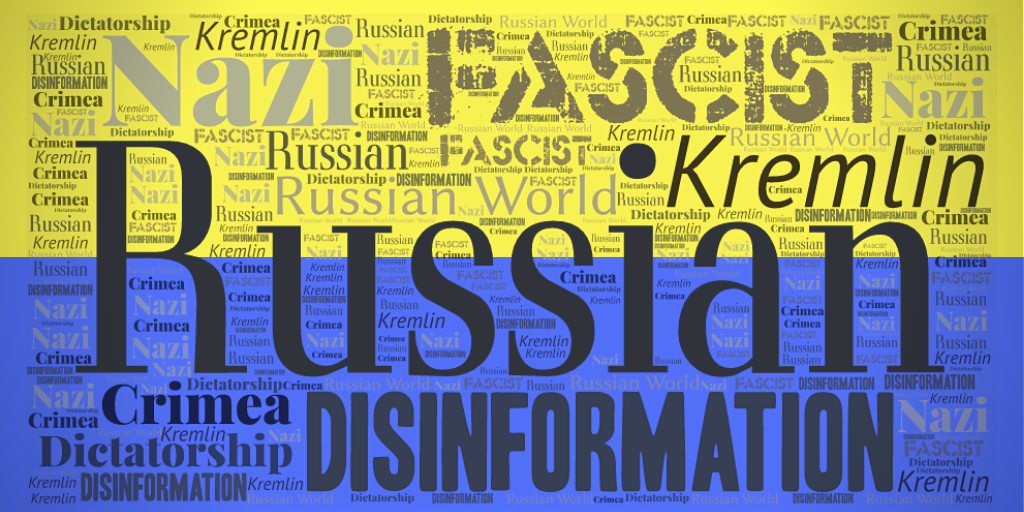
In one of your studies, you aptly noted how Russia exploits the issue of history and tries to superimpose certain historical events over the present, which is an integral part of Russian propaganda and hybrid influence. Currently, tensions are rising amid a really sharp reaction from Russian officials and a number of public commentators on the statement recently voiced by President of Ukraine Volodymyr Zelensky on the need for the people of Donbas to choose the country in which they want to live. In this regard, what narratives will the Kremlin further promote to its national audiences, certain audiences in Ukraine?
My PhD and forthcoming book examined official uses of political history in Russia during Vladimir Putin’s third term, including case studies on the war in Ukraine and Russian responses to sanctions imposed after the downing of MH17. Within those narratives, there was a strong emphasis on framing current events as repeats of historical triumphs and tragedies. In particular, state-affiliated media fixated on the idea that the EuroMaidan/Revolution of Dignity was a return of the banderovtsy, which (as Ukrainians already know) is used in Russia reductively to just signify Nazi collaborators. Interpretation of history is a security issue in Russia, as the recent National Security Strategy made abundantly clear (although it was evident long before that). As such, historical interpretation, especially of World War Two is used to differentiate ‘good’ Ukrainians in the East from ‘bad’ Ukrainians. Moreover, pro-Kremlin domestic media often depict separatist Russian-backed fighters as heirs to the Red Army while the Ukrainian Army are conflated with the OUN/UPA. Such narratives will remain a domestic mainstay particularly on the bilious daytime discussion programs, in tabloid papers, and on news round-ups like Vesti Nedeli.
However, such historically-focused narratives do not always translate well abroad, especially as most in Western Europe have no idea who Stepan Bandera was. Instead, the focus in countries like the U.S. and UK is on depicting Ukrainians as far-right extremists. Outlets like RT have been especially productive at this form of disinformation and exaggeration of the far-right presence.
Domestically, other prominent Russian media and politicians’ narratives will center on how Ukraine is not a real state, appealing to what Emil Pain has described as the Russian imperial consciousness. Vladimir Putin’s recent article on Ukrainian and Russian historical unity was outrageously inaccurate, and Ukraine did well to respond jokily rather than give Putin the memory war he so clearly desires. However, his arguments also fed into this idea that Ukraine should not be – and is not really – a separate state with a separate identity.
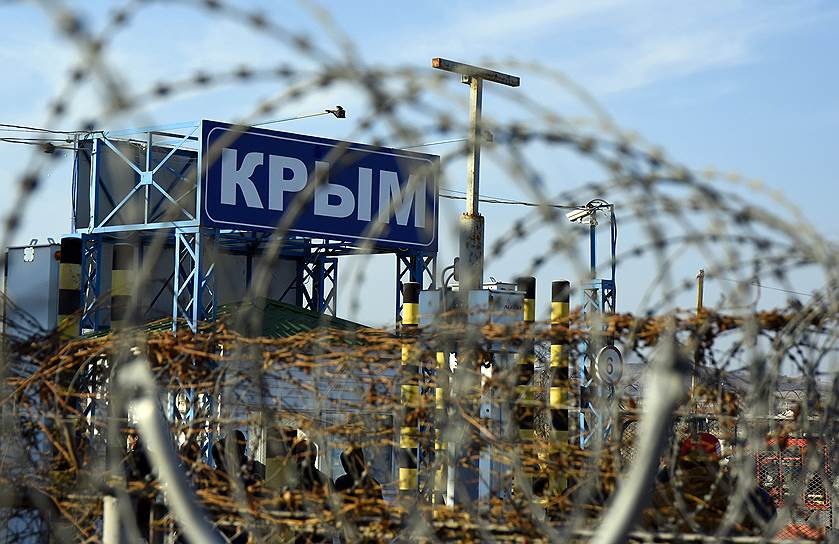
FOR TOO LONG, COUNTRIES IN WESTERN EUROPE AND NORTH AMERICA HAVE FOLLOWED UP VERY ANGRY RHETORIC AGAINST THE KREMLIN’S AGGRESSION WITH VERY LITTLE ACTION
As you wrote earlier, not only does Russia's occupation of Crimea have implications for regional security, it also undermines the significance and value of international law. What tools do you think need to be improved so that Russia is actually held accountable for violating these norms, neglecting human rights, and resorting to outright acts of international aggression? Perhaps the issue of creating some new tools in this regard should be considered?
Russia’s occupation of Crimea carries serious repercussions not only for regional security but also for the meaning and value of legal and international norms. The Crimea Platform is aimed at formulating and cohering an international response to these repercussions, but it is a difficult time right now for the international order. Some countries, particularly the USA, are choosing to focus their energies on tackling Chinese influence over the Russian state’s aggression abroad. At the same time, many governments are worried about defending the reputation of liberal democracy at home, trying to stem liberalism’s bleeding into populism. In this context, there doesn’t seem to the imagination or appetite for shoring up the liberal order so I don’t think it is realistic to create new tools. I do however think we can maximize or make more effective existing tools, such as Magnitsky sanctions, using law courts (e.g. the two MH17 court cases at the ECHR and at The Hague), and rallying international organizations that already exist to take tangible action. The most important thing, however, is to ensure your bark is never worse than your bite. For too long, countries in Western Europe and North America have followed up very angry rhetoric against the Kremlin’s aggression with very little action. They would be taken much more seriously if they said less and did more.
Yevgeny Matyushenko
